Feminism in Authoritarian Times in the Voice of Five International Activists
Grassroots International and our partner the World March of Women, as well as the Indigenous Environmental Network and the Grassroots Global Justice Alliance, are working together in a collaboration to strengthen grassroots feminist movements, with a specific focus on regions in the world that have seen a rise in right-wing authoritarianism. This article from Carta Capital reports on the international feminist seminar that took place in June 2019, organized by the World March of Women, which comes out of our collaboration’s work to build feminist strategy and popular education.
This article was first published by Carta Capital, translated and shared with permission.
Feminism in Authoritarian Times in the Voice of Five International Activists
by Giovanna Galvani
Gathered for an international seminar, they also speak to how to reach girls and inspire them to mobilize
On the front line against the Islamic State and the governments of Erdogan (Turkey), Duterte (Philippines), Trump (USA) and Bolsonaro [Brazil], their presence is visible. Women’s rights made definitive gains in the 20th century, but what women see now brings to the surface the need for unified coordination, and swiftness. If authoritarian powers move in a direction to take away rights that have been won, the organized women’s movement pulls in the other direction.
More than 30 international feminists gathered this week for the International Seminar on Resistance and Movement Building: from Confronting Neoliberalism to the Feminist Economy and the Commons, organized by the World March of Women in São Paulo. The voices, which came from all continents, echoed a crucial issue of the movement: how to grow it amid the escalation of inequality and authoritarianism?
Below, five women talk about their individual journeys. They also answer a common question: how to reach the young women who are growing up in the midst of this hurricane?
Turkey: Pressure For a Fair Justice
“There is a lot of repression in universities and in the press in Turkey, which is under government control. Many, if they could, would leave the country. Feminists have been the only ones who have been able to organize mass protests and actions in Turkey, because cases of feminicides have increased about 4 times, and there is no fair trial for rape and abuse.
We’re pressuring the courts. Another problem is the abuse of children and child marriage encouraged by the government. In law, they are forbidden, but they exist. It is an area in which we are fighting, mainly to maintain our rights – which are under attack.”
How to reach young women?
“We see lots of young women in our struggle, especially high school and college aged. At the last trial we went to, a young woman had been killed by two men, who were her bosses. They raped her, killed her and threw her off the 20th floor of a mall, and the justice campaign was launched by her college friends. They have used the media effectively, and that is what we have to discuss: the fourth generation of the feminist movement is much more organized through the internet.”
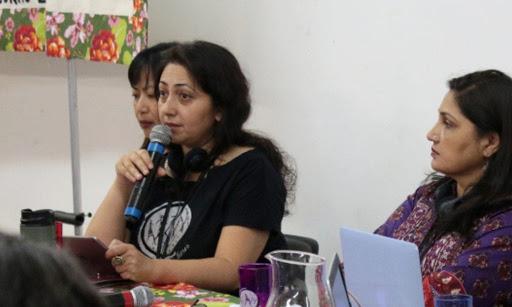
Yildiz Temürtükan
She is a member of the World March of Women of Turkey. She is active in Ankara, in defense of human rights, against torture and murder of social leaders, including members of her organization. Her trajectory has already inspired a short film about social activism in her name.
Philippines: The Fight Against Trafficking and Prostitution
“Trafficking of women and prostitution have existed since before capitalism, because patriarchy has always been there. Women have always been considered less than men. In desperate situations, if they became widowed and didn’t own property and had no way to feed their children, their bodies could be considered commodities.
Patriarchy has defined the existence of prostitution. As long as the structures of inequality between men and women – economically, culturally, politically – do not change, prostitution and trafficking of women will exist. We witnessed a global campaign against sexual harassment in the entertainment industry, for example.
We hope that this so-called fourth wave of feminism will change people’s consciousness, because abuse and harassment are not so different from prostitution. The only difference between them is that prostitution is directly paid. But for example, men in power want to take advantage of the fact that women need to work and need to stay in that place.”
How to reach young women?
“Brazil and the Philippines are, in a way, in the same political situation, because our presidents have won with speeches against women. But girls are furious about this. When you have these speeches, it is a challenge to young women to unite, to stand up for themselves and to ensure the rights they have already acquired – the right to dignity, sexual autonomy and integrity. We need to take the lead and say we are not afraid. We have been fighting for these rights for decades, and we need to defend our victories as women, and that comes from organizing in groups.”
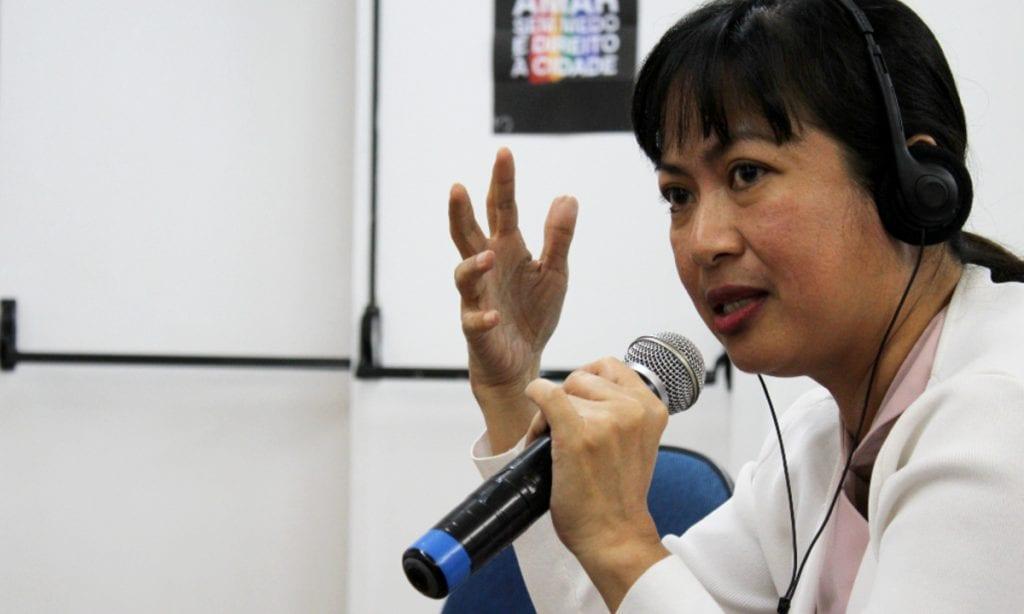
Jean Enriquez
She is an activist, president of the Coalition Against Trafficking in Women in the Asia-Pacific Region and a lawyer for women’s rights. In 2014 Jean was recognized by UNESCO for her work against prostitution and international trafficking.
Kurdistan: Women In Front After the Islamic State
“When we speak of the Islamic State, we have to understand that it is a destabilizing force organized by the powers of international secret services. It is the most powerful patriarchal, state and capitalist force created by world models to gain control in the Middle East. Kurdistan was influenced by different historical processes and, of course, by different social struggles. What we saw emerging strongly in northern Syria was a response in terms of the building of another society by revolutionary women, who now are part of the Democratic Federation of Northern Syria.
When women go out in defense of protection and self-defense, they defeat the Islamic State. They had a clear idea of the society they wanted to build, which is based on direct democracy, ecology and women’s liberation.”
How to reach young women?
“We have an interesting experience in Rojava [Kurdish region of Syria]. We have a popular education system, not based on the State, built by popular assemblies after democratic autonomy. Since we live in a community structure, we see girls as the most propulsive part of our society.
It is the communes that decide what types of education to have, through the system of democratic confederalism, which brings together different peoples and ethnicities to organize themselves through education. We follow the principle of what we call ‘genealogy’, in which children from the age of five study the struggle of women around the world, in addition to the struggle of the Kurdish revolutionaries. They turn it all into a process of joint growth. We do not think that society should determine the education of children, but rather convey the history of the liberation of peoples to the new generations.”
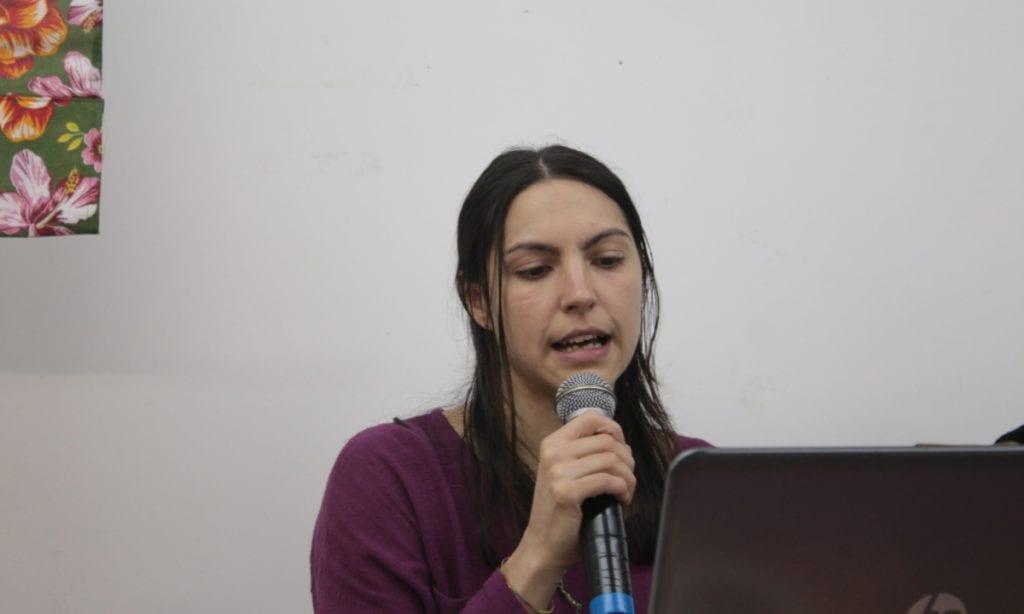
Alessia Dro
She is part of the Kurdistan Women’s Liberation Movement. She is trained in political philosophy and has taken action to share about the struggles of Kurdish women.
Brazil: Those Who Lived It, Do Not Forget
“What is happening in our country is not disconnected from the international process of the crisis of capitalism. To impose such a violent logic, there need to be mechanisms that destroy democracy and policies that focus on the personal life as well – such as sexuality. In a time when the system needs to reimpose itself, to do so it must get its subjects to shut up and take actions to ‘put things in place’, as if they were out of place before. And it is this ‘macho’ figure that will attack not only women, but also working-class men, who no longer occupy the false place of provider of the family and head of society.”
How to reach young women?
“At no point, since Bolsonaro won, did I despair. I have often said that our people, even with all the limits of progressive governments, have experienced a certain exercise of law, and the people know. Not everyone voted for the Bolsonaro, and he lost among the women – even more so among young women. This is where we are making the dispute.
Here, girls were discovering feminism from a very early age, and there are some very concrete organizational experiences, such as the high school students movement – they built it at the same level or with more leadership than boys. We, as a movement, need to be able to make room for women to participate.”
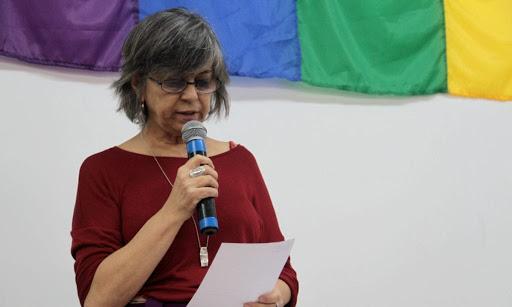
Nalu Faria
Coordinator of the World March of Women – Americas and the Sempreviva Feminist Organization (SOF). She participates in building the articulations of social movements, such as the Popular Brazil Front and the Continental Journey for Democracy and Against Neoliberalism. She has organized and written publications such as “The Production of Living” and “Challenges of the Free Market to Feminism”.
United States: The Erasure of Indigenous History
“It’s ‘okay’ for us to just take, take, take from Mother Earth. We take the natives out of their original spaces and throw them into small pieces of land to access resources such as oil, gas, uranium. Now we look at the consequences of extraction and global warming. Natives always seem to have occupied an uncomfortable space for others, but we have to reclaim our original homes back.”
How to reach young women?
“Much of what girls learn, like the preservation of territory or Mother Earth in the case of the indigenous, is a cultural teaching. These values are part of their cultures, but not all can experience this because they are not very connected to their community. Today, young women can learn something at school, but social networks have a lot of influence on what they see, and it makes it possible for them to create their own spaces. I do not know if there is a specific methodology, but we all try because we have to embrace who we can.”
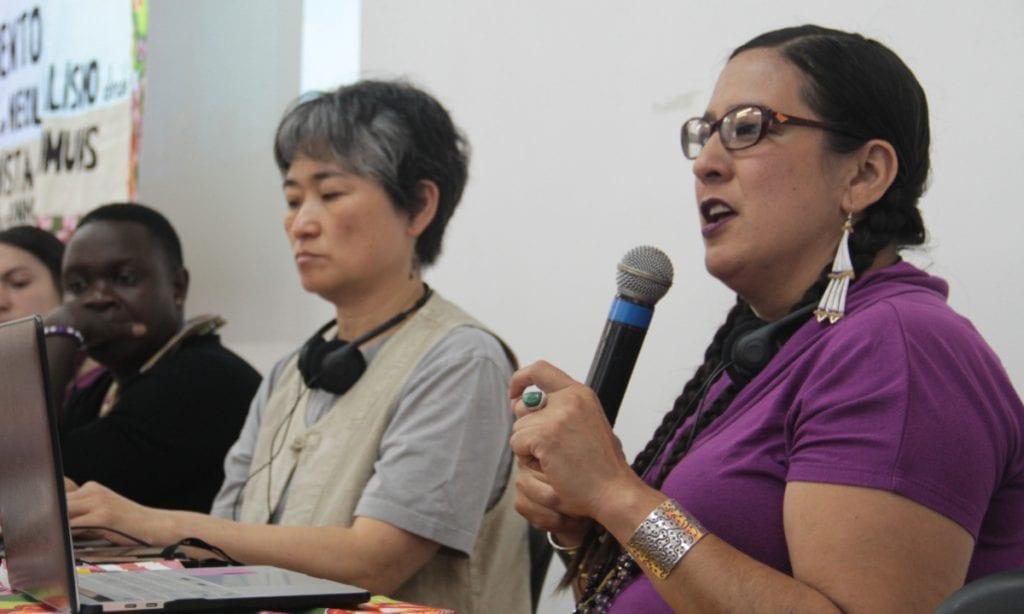
Ozawa Bineshi Albert
Yuchi and Annishinaabe leader, Ozawa is a member of the Indigenous Environmental Network (IEN), and also is active in the Grassroots Global Justice Alliance, in the United States. She fights to bring visibility to the disappearance and murder of indigenous women in the United States.
